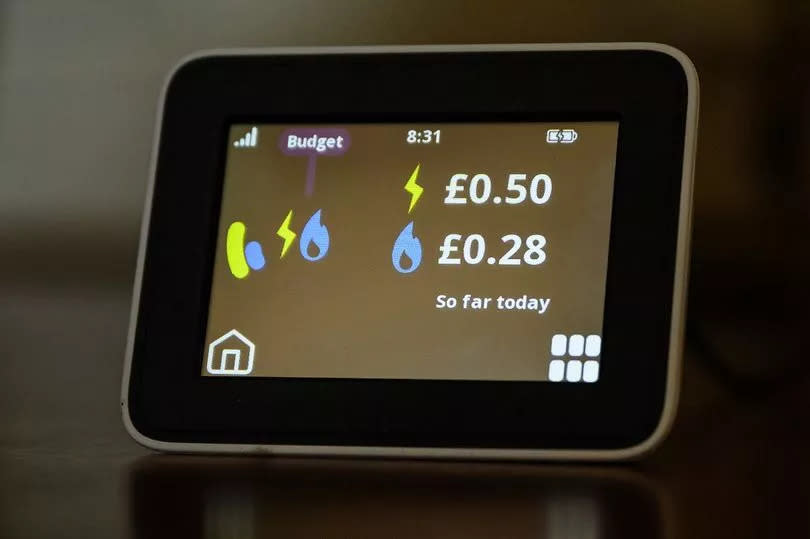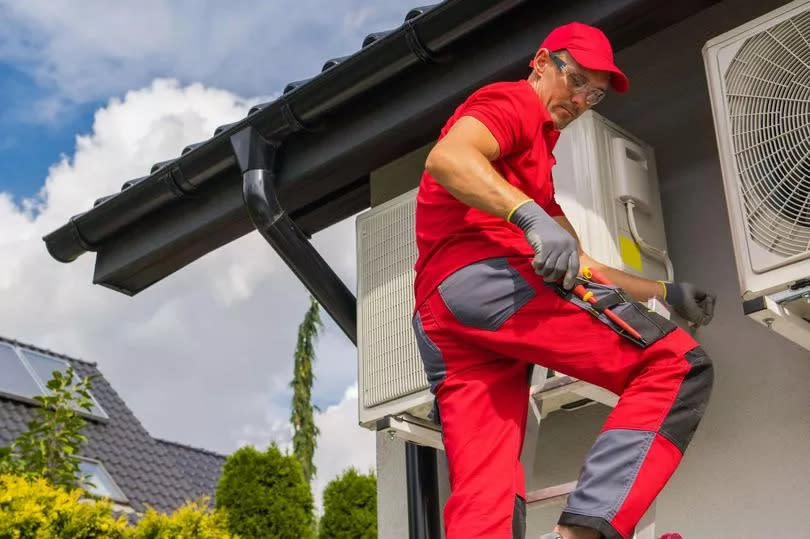Octopus and EDF customers could save £260 in major energy tariff change

Octopus and EDF customers have been told they could save up to £260 in a major tariff change. A number of energy providers have now launched special rates for those on heat pumps as the Government steps up efforts to achieve its net zero commitments.
Gas is typically a cheaper type of fuel in the UK and Octopus Energy says that running a heat pump on its Cosy Octopus tariff could save customers £221 a year compared to a traditional gas boiler. Meanwhile, EDF says that swapping to its Heat Pump Tracker Tariff can save the average three-bedroom house £260 a year.
Andy Kerr, founder of BOXT, said: "The adoption of heat pumps in UK households is seen by the UK government as a key step towards its goal of reaching net zero emissions by 2050. However, while heat pumps can be highly efficient for the right homes, the current cost of electricity in the UK combined with the upfront cost of purchasing a heat pump can act as a barrier for many customers.
"Therefore, the introduction of tailored heat pump tariffs by energy providers is undoubtedly good news. With dedicated pricing structures customised to the specific needs of heat pump users, households with an existing heat pump can enjoy reduced electricity costs, and those considering installing one may be more inclined to do so too."
READ MORE:
British Gas, OVO, EDF, Octopus customers to see £78 knocked off next energy bill
Get the latest news in our Money Saving Newsletter on benefits, finances, bills and shopping discounts
Mr Kerr added that the new tariffs from Octopus and EDF would help increase the take-up of heat pumps. He added: "We've recently seen other great advancements such as the new 'visit a heat pump' scheme launched by charity Nesta. These steps towards education alongside government incentives like the Boiler Upgrade Scheme, which offers eligible homeowners a fixed grant of £7,500 towards heat pump installation, will help break down the barriers to their adoption."
He said anyone considering switching over to a heat pump needed to compare the costs of installation and operation with a gas boiler and look at the suitability of their home. Mr Kerr explained: "Homeowners need clear guidance about how home efficiency improvements can be made, including insulation requirements and radiator guidelines, which are vital for optimum heat pump performance - but can increase upfront installation costs.
"For homes where more heat demand is required, or a heat pump alone may not provide cost savings, one option is a hybrid heat pump system. A hybrid system is where a heat pump is used alongside another heat source such as a fossil fuel boiler.
"The adoption of heat pumps in the UK holds great promise for reducing carbon emissions and combating climate change, however, addressing the cost of electricity is essential to ensure that this transition is sustainable for all households."
What are heat pumps?
According to Jon Bonnar, managing director at Cotswold Energy Group, a heat pump transfers heat from the environment outside to provide warmth inside your home. They can also provide cooling by transferring heat outwards.
"The most common heat pumps on the market today are ground source heat pumps and air source heat pumps. Both provide warmth to homes, but obtain it in completely different ways," says Mr Bonnar. "A ground source heat pump channels the consistent underground temperature of the earth and transfers the heat into your home. An air source heat pump absorbs heat from the environment, even at sub-zero temperatures, and releases warmth into your living space."

How much energy and money could a heat pump save you?
According to the Energy Saving Trust, heat pumps are highly efficient and generally produce around three times more energy than they take in. However, they may cost more to run than certain other systems, so this will need to be factored in too.
"Savings very much depend on what system you are replacing, and whether you are combining it with other technologies like solar," says Thomas Farquhar, co-founder and chief commercial officer of Heatio. "The Energy Saving Trust shows a guide of cost comparisons which can help with this.
"We have seen customers with combined systems – including heat pump, solar and battery – saving over 50 per cent," Mr Farquhar adds. "The key focus is that a heat pump is more than three times the efficiency of a boiler, so requires a lot less energy to produce the heat needed for your home. It requires electricity to run, so the lower you can get the cost of electricity from your energy supplier or by adding solar, the more you can maximise your savings from your heat pump."
Mr Bonnar added: "Once a heat pump is installed, homeowners can expect to save as much as 10 per cent off their gas heating bills over a year. With regular maintenance, heat pumps can operate for 25 years or more, making them a smart long-term investment."
How much do they cost to install?
An air source heat pump can typically cost from £7,500-£12,000 – and sometimes higher – while ground source heat pumps tend to cost even more. However, with the Government’s £7,500 Boiler Upgrade Scheme grant, for those eligible, the costs may come into line with a boiler installation.
"There have been examples in the press where heat pumps have been installed for less than the cost of a boiler, and in some cases for free," Mr Farquhar said. "Installation cost depends on what is already installed in the property, whether you are also installing radiators or underfloor heating, how far away all the key elements are, and how big the heat pump system is. There are also more green retrofit mortgages becoming available to consumers too, which will help improve accessibility to the technology."
Engineers usually conduct a pre-installation survey to advise homeowners on any upgrades needed to ensure their home is fully optimised to run a heat pump system. They may recommend changes, particularly in older homes or those with low EPC ratings that are less likely to be insulated compared to modern new-builds. Solutions such as cavity wall insulation and adding insulation to lofts and roof rooms are likely to be recommended, to help a heat pump run more efficiently.
On some occasions, engineers may advise on changes such as new radiators, pipework and hot water cylinders to make sure they're fully compatible with a newly installed heat pump system.
Get breaking news on BirminghamLive WhatsApp . Join our dedicated community to get the latest updates.

 Yahoo News
Yahoo News 
